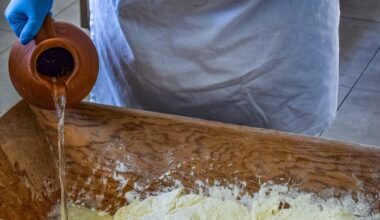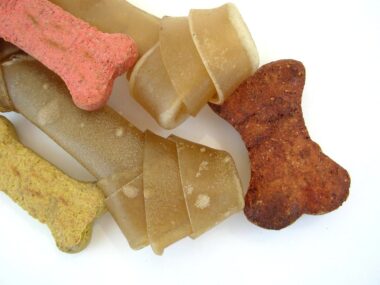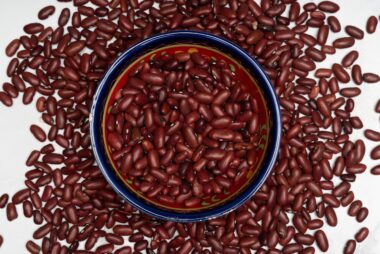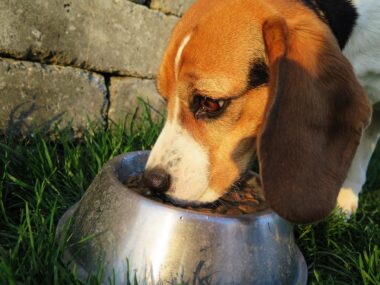Feeding Strategies for Senior Dogs with Kidney Problems
Managing diet for senior dogs with kidney disease is crucial for enhancing their quality of life. Unlike younger dogs, seniors face unique challenges with nutrition due to decreasing organ function. Focus on providing high-quality proteins that are low in phosphorous, which helps reduce the workload on the kidneys. You may consider incorporating proteins such as chicken and fish, which are often easier for dogs to digest. Additionally, maintaining hydration is essential. Encouraging water intake can alleviate strain on the kidneys. Many dogs are more encouraged to drink water if it’s flavored with low-sodium bone broth. Offer small, frequent meals to help with digestion and maintain energy levels. Monitor their appetite closely because lack of interest in food can indicate worsening conditions. Avoid high salt and phosphorus foods, as these can lead to further complications for your canine companion. Consult your veterinarian regularly for adjustments in diet based on your dog’s lab results. Create a balanced meal plan tailored specifically for their needs to ensure they receive necessary vitamins and minerals while managing kidney disease effectively.
Incorporating Fruits and Vegetables
Adding fruits and vegetables to your dog’s diet can offer essential vitamins while keeping the phosphorus levels low. Consider safe options like carrots, green beans, and blueberries, which are not only nutritious but often appealing to dogs. Before introducing any new food items, it’s crucial to consult with a vet to ensure compatibility with your dog’s specific needs and medical conditions. Settle on appropriate portion sizes; even healthy snacks can contribute to weight gain if overfed. Introducing these extra items can help increase fiber and lower protein percentages while ensuring your dog feels full and satisfied. Healthy snacks can also serve as a motivating factor for reluctant eaters. Keep in mind, some vegetables might cause digestive issues, so observe your dog for any adverse reactions. Over time, establish a consistent routine that simplifies your dog’s meal times, ensuring the fruits and vegetables are integrated smoothly. Always cook vegetables or serve them raw; cooking enhances digestibility and nutritional absorption. Keeping your dog’s meals interesting aids in their willingness to eat, especially when they struggle with kidney problems.
Regulating Mineral Intake
For dogs with kidney issues, regulating mineral intake is essential to promote better kidney health. Key minerals to monitor include potassium, phosphorus, and sodium. Opt for dog foods specifically formulated for those with kidney concerns to assist with managing these mineral levels. Low-phosphorus diets may feature specialty foods that limit the amount of phosphorus your dog consumes, allowing the kidneys to function more smoothly. You may need to supplement their diet with specific vitamins to ensure they are receiving all necessary nutrients without overdoing the harmful minerals. Seek your veterinarian’s advice to use appropriate supplements, if necessary. Monitoring lab results regularly will provide insights into your dog’s health status and help tailor their diet accordingly. Reducing sodium intake is also vital as it can prevent fluid retention, which adds strain to the kidneys. Various formulas are available to support kidney health and available in both dry and wet food options. Ensuring the best nutrition for your senior dog doesn’t need to be difficult; with proper organization and planning, it becomes manageable and effective.
Importance of Hydration
Hydration plays a significant role in managing kidney health for senior dogs. Dogs suffering from kidney disease often struggle with dehydration due to decreased thirst and increased urination. It’s essential to encourage your dog to drink plenty of water daily. Introduce a water fountain that continuously circulates water to stimulate their interest, as many dogs prefer running water to stagnant sources. Maintaining hydration helps the kidneys function more effectively and diminishes the concentration of waste products in the blood. If your dog isn’t drinking enough, consider incorporating wet food into their diet, as it has higher moisture content. Additionally, homemade broths made from safe ingredients, like chicken bones or vegetables, can be enticing and provide extra hydration. Avoid any ingredients that are toxic to dogs, like onions or garlic. Monitor their water intake closely; signs of dehydration can include lethargy, dry gums, or decreased skin elasticity. Always place fresh, clean water at their disposal throughout the day. Your efforts will help stimulate hydration and generally buoy your dog’s health and wellbeing, particularly in advanced years.
Home-Cooked Meals for Custom Nutrition
Preparing home-cooked meals for your senior dog presents an opportunity to customize their diet and meet their specific health needs related to kidney disease. It’s essential to work alongside your veterinarian when devising meals to ensure a balanced diet. Understanding essential nutrients is vital when crafting these meals. Incorporate lean proteins like turkey and fish while ensuring they remain low in phosphorus. Depending on the dog’s reaction over time, consider adding carbohydrates such as sweet potatoes or white rice as per veterinary guidance for manageable energy levels. Homemade meals can personalize your dog’s experience and encourage their interest in eating, even amid health challenges. Use fresh fruits and vegetables for nutrients but ensure they are always dog-safe. Keep recipes simple and avoid any potentially toxic foods and harmful ingredients. Begin with tiny portions until you establish their preferences and tolerances. This approach allows you to adapt meals based on their reactions. Tracking any changes in weight, energy levels, or overall mood will guide you in modifying their nutrition efficiently.
Regular Check-ups are Essential
Regular veterinary check-ups for senior dogs with kidney issues cannot be understated, as they are critical for monitoring your dog’s health and assessing the effectiveness of their diet. Frequent blood tests can reveal critical indicators such as kidney function levels and reserves. Consult with your vet to determine an appropriate schedule for examinations and blood analyses that cater to your dog’s unique health circumstances. These appointments can effectively outline dietary adjustments, making necessary interventions in time. Falling behind on preventive measures may lead to complications that are harder to manage. Each dog requires individualized attention based on their medical history, weight, and overall condition. You can ask your veterinarian for beacon tests to track specific markers that indicate their well-being. This enables a proactive approach to managing kidney health through adjustments in diets and nutritional support. Understanding and acting upon these results will offer insights into how your dog is processing their meals. Listening closely to your vet’s advice and monitoring your dog’s progress leads to better outcomes regarding their kidney health.
Managing Special Dietary Needs
In conclusion, managing special dietary needs for senior dogs suffering from kidney disease requires careful planning and consideration. Your dog’s health may depend on your attentiveness to their unique requirements. Ensure to align any dietary changes with your veterinarian’s recommendations to maintain a lower phosphorous and sodium intake. Each little adjustment can have significant implications for their health and overall wellbeing. Focus on high-quality, lean proteins and avoid processed foods that may contain undesirable additives. Regularly assess your dog’s reaction to any dietary changes, as not all dogs will thrive on the same plan. Keep a food journal to track what’s working, and don’t hesitate to reach out with questions to your veterinarian. It’s crucial to ensure proper monitoring through check-ups, lab tests, and open communication with your vet. These measures ensure your dog’s dietary plan adequately supports kidney function while keeping them energized. Maintain flexibility and adapt their diets based on their evolving needs as they age, ensuring a happier, healthier life for your cherished canine companion.





